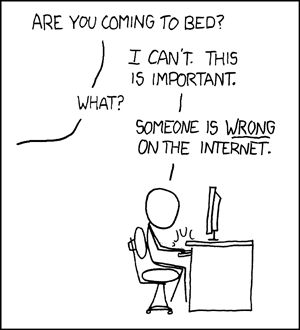Thousands of comments appear on news websites every day. A new study by the World Association of Newspapers and News Publishers shows that out of 104 media outlets from 63 countries, only seven did not allow reader comments.
Comments sections on websites serve a vital function in generating debate on issues of public interest — they make online media a dynamic interactive space for dialogue, rather than serving merely as a platform where the news is reported. A cornerstone of Internet culture, comments sections represent a fundamental structural difference between traditional and online media. Thanks to comments sections, the flow of information in online media is no longer one-way — they are a key enabler of the exercise of freedom of expression for all.
Because of the important role user comments play in facilitating the free flow of information, the Media Legal Defence Initiative, together with 23 media organisations from across the world, has intervened in the much-debated case of Delfi v. Estonia at the European Court of Human Rights, asking the Court to respect the principle that online media should not have to monitor the thousands of comments left on their sites by readers every day. The case was referred to the Grand Chamber of the European Court after an earlier ruling by the Court’s First Section in October 2013, which had ruled that Estonian news website Delfi was liable for defamatory comments posted by its users despite the fact that Delfi administrators had removed the comments as soon as they received notification about their defamatory nature.
In the intervention, we underline the importance of comments sections on websites and ask the European Court to consider legal regimes under EU and US law that exempt media from having to monitor their sites for offensive comments, such as Section 230 of the US Communications Decency Act. The brief also sets out self-regulatory practices developed by the media to moderate such comments and asks the Court to take these best practices into account.
The judgment of the Grand Chamber of the European Court will have severe implications not only for online media, but also for a wide range of other websites and blogs that provide comments sections. A hearing in the case will be held on July 9. The judgment is expected before the end of this year.
Read the Media Legal Defence Initiative intervention here.
Nani Jansen is Senior Legal Counsel and Alinda Vermeer is Legal Officer with the Media Legal Defence Initiative.





2 comments
Well, I don’t support the questioning and I think its a bit ridiculous, as the reason was that the owner of the ship company got very harsh insulted and the media company should have the responsibility at least to remove it within hours, what they didn’t. It was there for more than 20 days. The claim, that this decision would stop people from commenting is not true, it would stop people from insulting and not discussing on a critical level, as it should be. Media claims here the “pars pro toto”, but were is the connection between insulting someone online, because I can change my name and not giving my critical comment. I feel ashamed, that quality media from around the world is supporting the claim of Delfi. For me it has nothing to do with a principle right of commenting, but with a right on respect towards people I am talking with.